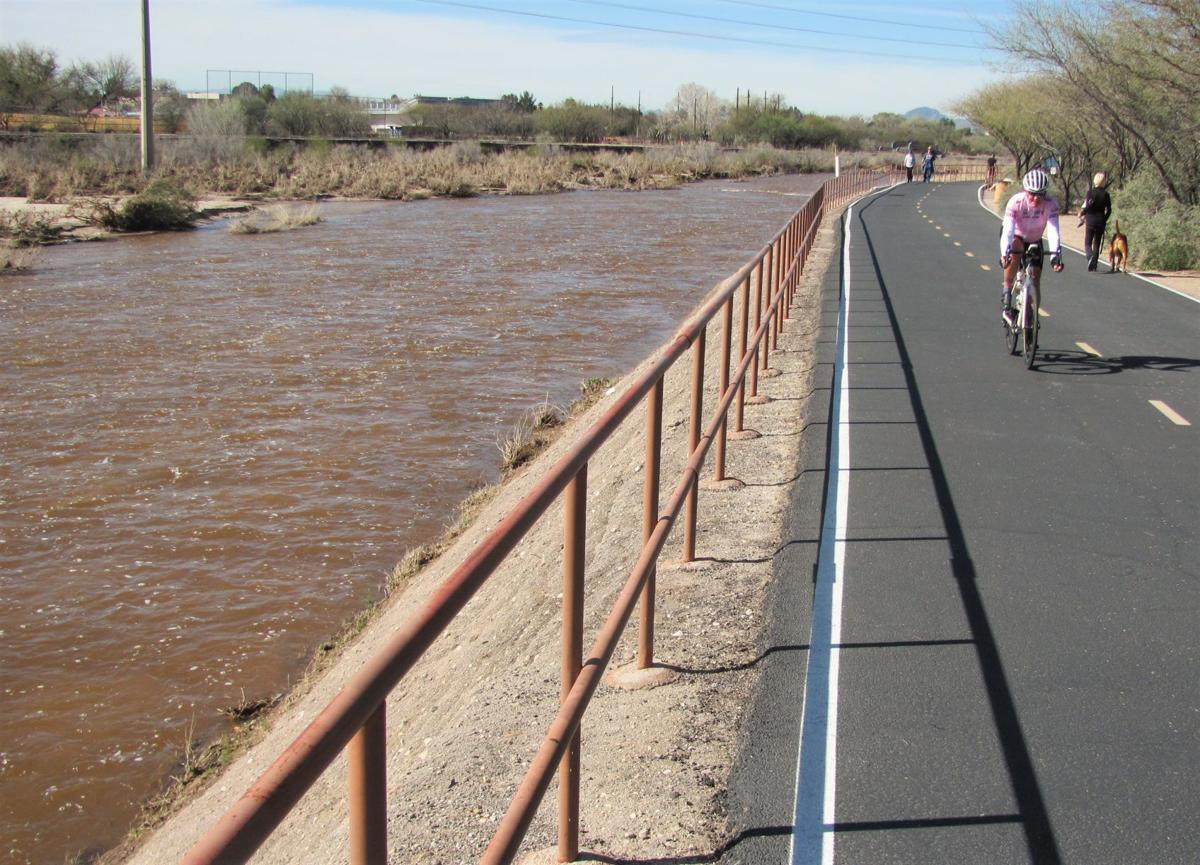Facing opposition from virtually everyone concerned about the issue, a state agency scrubbed plans to take over Clean Water Act permitting of the discharge and dumping of various materials into the state’s rivers and streams.
The Arizona Department of Environmental Quality’s recent decision, a major reversal from its past stance, means that the job of handing out these oft-controversial permits will remain in the federal Army Corps of Engineers’ hands.
It comes as litigation is pending against two approved Army Corps permits in Southern Arizona — one for the proposed Rosemont Mine near Tucson, another for the proposed 28,000-home Villages at Vigneto development in Benson.
The decision also comes more than two years after Republican Gov. Doug Ducey first raised the possibility of a state takeover in a June 2017 letter to the U.S. Environmental Protection Agency. The next year, the Legislature authorized ADEQ to start work on formalizing a state takeover.
The agency then launched an intensive effort to solicit public opinion on the idea.
The result was near-unanimous opposition from interest groups representing environmentalists, county governments, home builders and Indian tribes, along with individual government agencies including Pima County, tribes and the big Phoenix utilities Arizona Public Service and Salt River Project.
In a terse statement announcing its rejection of the state takeover, ADEQ said that close to 500 people had attended meetings, joined in work groups and provided more than 2,100 written comments on the idea.
“The majority of stakeholder input supported retaining the current process,” was the department’s sole written rationale for dropping the state takeover proposal.
The department had said a state takeover would reduce timetables to issue permits, increase public accountability and lead to the state imposing “predictable and consistent permit conditions.”
But critics said the rules would cost permit applicants too much while at the same time weakening environmental protections. They questioned whether ADEQ would have expertise to run the program and complained that tribes, in particular, weren’t adequately consulted about the change.
The state decision hardly puts a stop to the continuing controversy over Clean Water Act permitting, however.
Earlier this month, the EPA and Corps submitted a new set of federal rules for the permitting to the U.S. Office of Management and Budget that will almost certainly strip any regulation of development along ephemeral streams. Those streams, which carry water only after storms, make up the overwhelming majority of all streams in Arizona and the entire Southwest.
EPA expects final approval to come “in the near term,” the agency said in a statement to the Star. Environmental groups are almost certain to challenge those rules in court.
Not only would 100 percent of Arizona’s ephemeral streams such as the Rillito River be freed of regulation under this federal change, 59% of perennial and intermittent streams, and 99% of lakes will be excluded from regulation, ADEQ has said.
In total, ADEQ estimates that development along 93 percent of all miles of streams in Arizona won’t be regulated and 98% of all types of Clean Water Act permits now being issued won’t be needed in the future.
Those facts were among the reasons that Arizona Public Service opposed the state takeover, it said in a letter to the department.
“With the scope of the program set to be reduced so significantly, there will likewise be a significant reduction in the number of permits issued, which will therefore drastically reduce the funding for the program,” wrote Eric Massey, the utility’s environmental policy director, and a former ADEQ official. “It would be very disappointing to see ADEQ spend the time, money and effort to assume the program, only to have the program be unable to support itself.”
Other criticisms of the state proposal raised in letters to ADEQ included:
- Utilities, the Pima County Regional Transit Authority and numerous county governments took issue with the fact that they would face steep fees for applying for state Clean Water Act permits, whereas they pay no or much smaller fees to the federal government today. The new fees would cover the annual, $2.5 million cost to administer the program, including the hiring of 10 employees to run it, ADEQ has said.
- The state takeover proposal would eliminate the Army Corps’ standard review that determines whether or not a proposed permit is in the public interest. That “public interest review” is an integral part of public participation for the Corps’ permits, said the Salt River-Pima Maricopa Indian Community’s letter to ADEQ.
- The state program would lack the protection of cultural and historical resources that’s required under the federal permitting program, said the San Carlos Apache Tribe’s letter to ADEQ.
- In proposing the state takeover, ADEQ said it would speed the review of proposed permits compared to federal reviews, whose lengthy timetables for permit approvals have regularly drawn the ire of developers, mining companies and other applicants.
But some parties commenting on the state takeover were skeptical that the state could actually move that much faster than the feds, while others said that emphasizing speed would come at the expense of insuring adequate environmental protection.
- A coalition of 15 environmental groups said the state agency lacks the technical expertise to run such a program compared to that of the Army Corps. They’re also concerned that endangered species wouldn’t get the same protection under a state program as they do under the federal program, although ADEQ promised the protections would be the same. Similarly, they complained that the state program would offer no protection under the National Environmental Policy Act, which is considered during federal permitting.
- Environmentalists and other critics also questioned the state’s heavy reliance on permit fees as a source of money to run the program, and said that would tend to bias ADEQ in favor of permit applicants who supply the fees. “It is human nature to be particularly responsive to someone who is paying the bill,” wrote Farmers Investment Co., the Sahuarita-based pecan growers.





